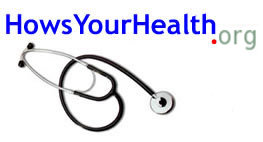
© 1997-2023 FNX Corporation and Trustees of Dartmouth College. All Rights Reserved.
CHAPTER 12: Tiredness
Contents
Young men and women are supposed to be at the peak of their energy levels, and thus feeling tired, waking up tired, and generally being without much energy is a bother and a worry.
Yet, one of the most common concerns during adolescence is feeling tired and fatigued. Teens will often say that they feel dizzy as well. So if you feel this way, you are probably not alone! If your tiredness, fatigue or dizziness lasts for more than two to three weeks after you have read this section, you should contact a doctor or nurse.
Sleep problems
Most persons require seven to ten hours of sleep a night. But if you are growing, you need to know that a lot of your growth occurs when you are asleep. For this reason many growing teens require twelve hours of sleep in order to feel rested. Not getting enough sleep or having a fitful sleep is the most common reason for being tired. Having an irregular schedule, pulling "all nighters" for studying, using stay awake pills or coffee will catch up to you and cause fatigue.
If you have trouble falling asleep or staying asleep, try some of the following suggestions:
- Follow a regular schedule -- don't have one schedule for week-nights and one for the weekend. A regular routine at bedtime like reading a story or taking a warm bath will tell your body it's time to sleep.
- Try to exercise regularly. Exercise several hours before bedtime, it will usually help you sleep.
- Avoid drinking caffeinated drinks (coffee, cola) late in the day.
- Don't drink alcohol or smoke cigarettes. A small amount of alcohol can make it harder to stay asleep. Nicotine is a stimulant and will keep you awake.
- Try not to worry about your sleep. Some people play mental games. For example, think black -- a black cat on a black pillow on a black sofa, etc.
- Don't use sleeping pills. The non-prescription ones contain antihistamines and are not harmful. But they are not that effective; during the day they can make you drowsy and prone to accidents.
Depression
Being depressed usually makes us feel tired and fatigued. Not everyone who is depressed feels sad. Some lack energy, sleep poorly, eat poorly, and have little interest in activities and friends. Sometimes the depression is caused by a particular event: a loss of a friend, a death in the family. Sometimes the depression comes on gradually with no obvious cause. When the tiredness and depression linger, you should contact a nurse or doctor or someone close to you who can help. Depression always do go away, but that is hard for someone in the middle of a depression to understand.
Thinking about hurting yourself is a sign that the depression has gotten very serious. Please talk to someone that you trust, a doctor, nurse, or counselor.
Other Cause of Tiredness
Major dieting can lead to fatigue and tiredness because of the lack of all of the required vitamins and calories.
Allergies can be a cause for a fitful sleep and resultant tiredness.
Being too active and too stressed by the activities can also lead to a fitful night's sleep and tiredness. A lot of teenagers try to have a job, go to school, and hang around with friends.
Write down what you are doing each day. See if you are pushing yourself too hard.
Mono (mononucleosis) is a common illness and is caused by a virus infection. You will usually have a fever, sore throat, large tender swellings (lymph nodes) in the neck, headache, and loss of appetite. It lasts three to six weeks and then the body recovers. You can get Mono only once.
Anemia (low blood) can cause tiredness. If it occurs, it is usually due to a lack of iron in the diet and is seen especially in young women who are menstruating and not eating properly.
Pills, drugs and alcohol. Antihistamines (like Benadryl) will definitely make you feel tired. Many other legal and illegal drugs as well as alcohol can cause tiredness as well.
Unclear Cause. Sometimes doctors and nurses don't find out the cause. People may be told that they have "low sugar" or the "chronic fatigue syndrome". But these and other names do not mean that doctors and nurses really understand the cause of the problem. Fortunately, the problem usually goes away as time passes.
We have tried to make the How's Your Health error-free. However, those involved in its preparation can not warrant that all of the information is accurate and complete. When you use How's Your Health as a guide for your health and medical care, be sure to discuss any questions about it with your doctor, nurse, or other health care worker.
To choose another chapter, click the 'BACK' button.
Last reviewed: January 2023 © 1997-2023 FNX Corporation and Trustees of Dartmouth College. All Rights Reserved.